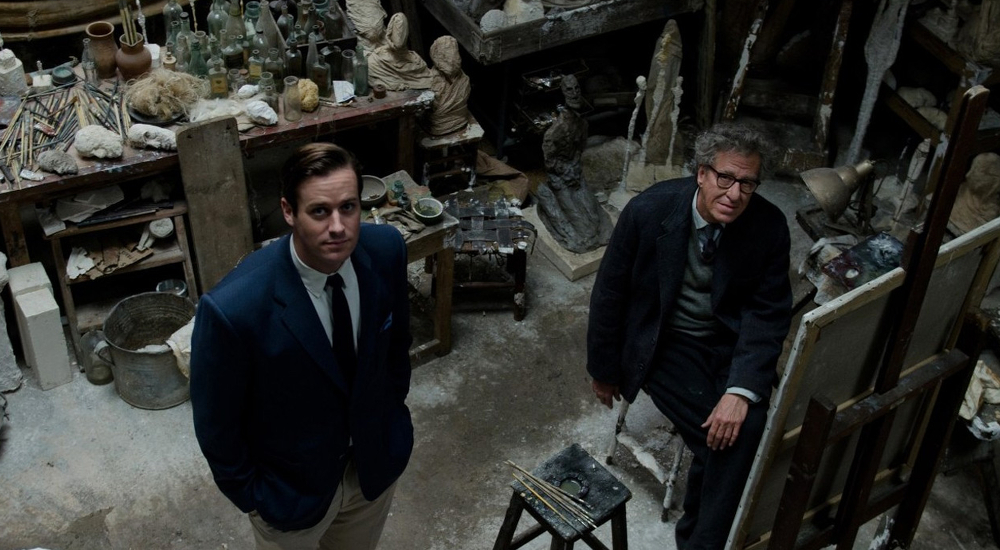There are bad movies, and then there are movies that are fine but a complete waste of your time. Sometimes the latter is more frustrating. Given the talent involved in Final Portrait, it's a real shame it's not better, or at least has a point.
Everyone involved, including Stanley Tucci behind the camera, has created vibrant films about colorful characters. So why does Final Portrait seem like it's going through the motions, with excellent period detail covering its mediocrity? It's a mystery.
Armie Hammer, introduced in the blandest expository voiceover ever recorded, plays James Lord, an author who wrote biographies on numerous artists. His life story is fascinating, but Hammer doesn't get to play any of that. He's only here to bask in the talent of Alberto Giacometti (Geoffrey Rush), who asks Lord to sit for what he claims will be his last portrait.
The running joke of the film is that Giacometti is a perfectionist, so a couple afternoons turns into weeks before Lord has noticed that Giacometti has basically wasted his time. Why? Well, the film doesn't really explore that, because Giacometti is only a two-dimensional character. His genius is declared early on, so everything is excused. He smokes, he drinks, he openly carries on an affair with a local prostitute. The film doesn't seem interested in interrogating why Giacometti uses people to satisfy his impulses.
Great biopics truly explore the person beneath the accomplishments, but Final Portrait never goes below the surface. We aren't made to understand why Giacometti is so revered, why so many people put up with his behavior, or why this story is even worth telling.
The film feels like sketch, both in the artistic sense and the comedic sense. It's certainly not that funny, but the gag is that Lord upends his life to satisfy Giacometti's whims. Lord will sit for the portrait, Giacometti will realize it's not up to his lofty standards, then shout an expletive. Repeat the next day.
There's a fascinating film or two to be made about Lord, Giacometti and their friendship. But like the painting, Final Portrait needed to undergo a lot of revisions.

